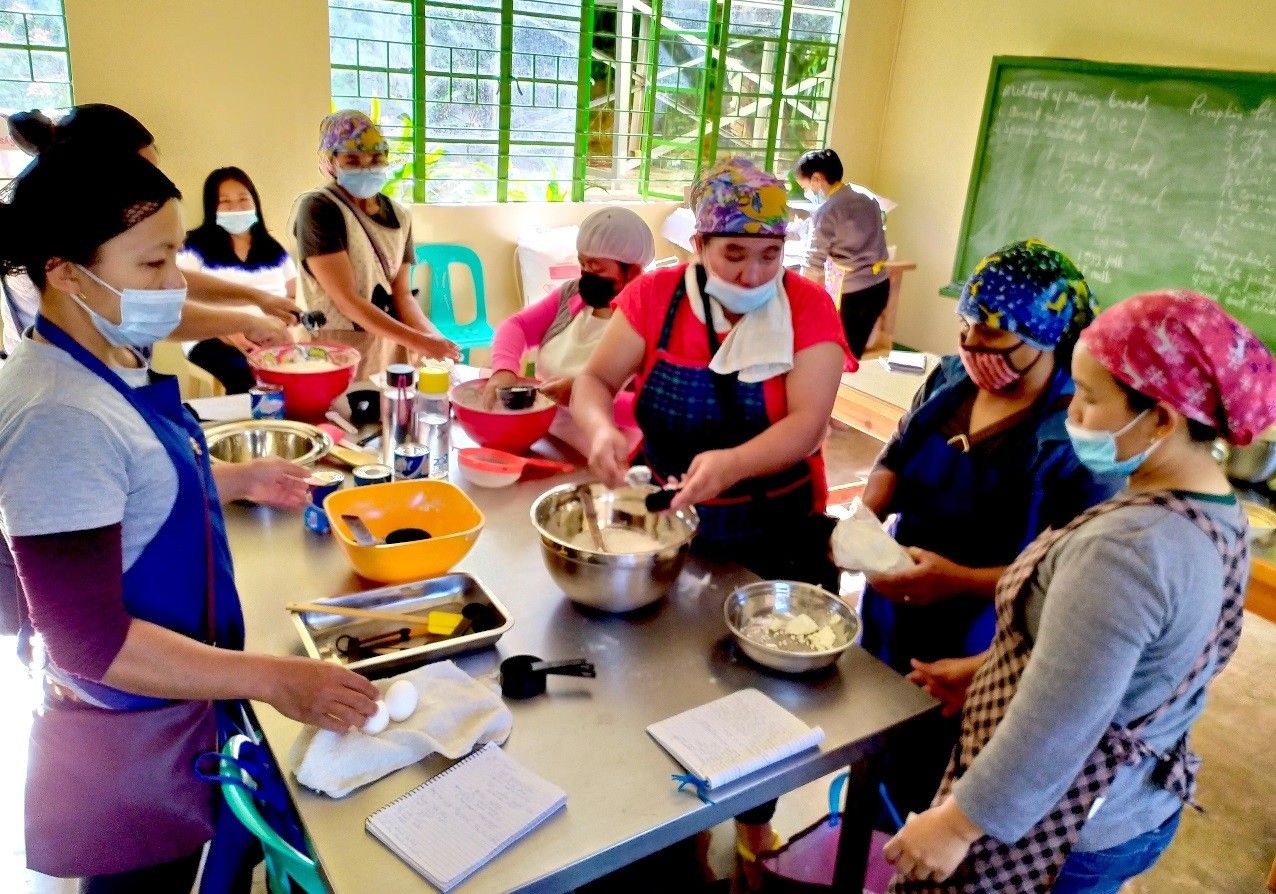Not just senior high: Bill creating ‘multiple pathways’ after high school hurdles House panel

MANILA, Philippines (Updated 3:17 p.m.) — The House basic education committee has approved a measure creating two education pathways for high school graduates — a proposal that lawmakers believe highlights the role of the Technical Education and Skills Development Authority in making students work-ready.
The committee approved on Wednesday an unnumbered substitute bill that takes off from the K+10+2 bill filed by Deputy Speaker Rep. Gloria Macapagal Arroyo (Pampanga) and other related measures that sought to address the problem of senior graduates’ poor employment prospects.
The proposed measure allows students who finish four years of high school to either go the technical vocational route and gain skills for employment or spend two more years taking up college preparatory classes (currently called senior high school).
Offering high school graduates the chance to take up improved tech-voc programs would break the conventional high-school-to-college route that has long characterized Philippine education, according to House basic education panel chairperson Rep. Roman Romulo (Pasig City).
“In effect, it will amend the K to 12 law in the sense that it now opens up additional education pathways for Filipino learners,” Romulo said in a phone call to Philstar.com.
“Right now, we are still viewing tech-voc as a second-class pathway. But globally, that is no longer true. We see that in several countries, skills training is just as important to any economy as an academic pathway,” the lawmaker said.
Specifically, in the proposed “Education Pathways Act,” junior high school graduates (students who finish Grade 10 or 4th year high school) will have these two options:
- College Preparatory Pathway - Students in this pathway will advance to grades 11 and 12 and take up a curriculum developed specifically to prepare students for college / university studies.
In this pathway, the “college preparatory” program curriculum (formerly senior high school) will contain "fundamental subjects" to guarantee that students learn practical literacy skills, as well as "elective courses" to allow students to explore their interests and meet college admission requirements.
- Technical-Vocational Education Pathway - Students who choose this pathway will enroll in their chosen technical-vocational program to develop practical skills.
Expected to accommodate students gearing for employment after two years of tech-voc education, TESDA will collaborate with industry and facilitate apprenticeship / on-the-job training programs for students.
The unnumbered bill also makes available a ladderized program for students who complete two-year tech-voc courses, which will allow them to have their tech-voc units credited for their college or university studies.
During the panel's deliberations on Wednesday, Macapagal-Arroyo and Romulo concurred that the measure should include a provision that allows for its implementation even without the execution of an Implementing Rules and Regulations (IRR).
‘TESDA needs to step up’
If passed into law, the Education Pathways Act will also require TESDA to step up and improve its delivery of programs to accommodate the expected number of students availing of the tech-voc route, Romulo said.
“We want the industry to be involved. We want to upgrade the tech-voc track by putting it under an expert, which is supposed to be TESDA and the industries,” Romulo said.
Romulo said that tech-voc education should be industry-driven — which means private companies or industries have to actively communicate with the education sector on the skills students need for employment.
The K to 12 curriculum, which was promoted by its proponents under the Aquino administration as a curriculum that will create job-ready graduates, was found to have deficiencies that led to poor development of “soft skills” for work among new graduates, according to a study by the Commission on Human Rights in April.
This is similar to the 2018 study conducted by Philippine Business for Education that found only one in five companies were ready to hire senior high school graduates, with concerns centering mostly on their lack of actual on-the-job training.
“TESDA has to strengthen its coordination and partnership with the industry. We need more industry boards that will identify the competencies needed, because this is what TESDA uses to train assessors, teachers,” Romulo said.
But Romulo also believes that in order for the proposed measure to be successful, TESDA must actively anticipate the type of jobs or skills that will be lucrative in the next few years.
“TESDA should identify the high-paying tech-voc jobs. Is it AI, technical things, medical health care? That is where TESDA should focus. It’s not that the decision should only come from them,” the lawmaker said.
With around 30 to 36% of senior high students currently taking up the technical vocational track (different from the academic track), Romulo also urged the Department of Education to increase the number of teachers in senior high who can train students in tech-voc courses.
The lawmaker proposed Education Pathways Act would “most likely” be passed in the House of Representatives before the end of the year.
--
Editor's note: This story has been corrected to clarify a quote from Rep. Roman Romulo.
- Latest
- Trending


































